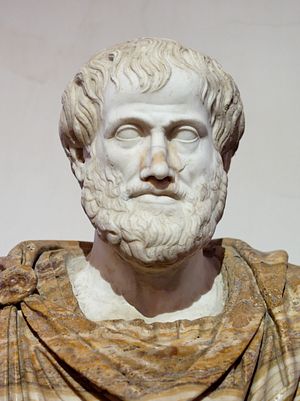It’s easy to reduce strategy to book learning (or larnin’ if you prefer the technical terms we Southerners employ). The logic is straightforward: you “make” strategists, to use U.S. Navy leaders’ lingo for this problem, by immersing officers and defense officials in the strategic canon. Studying treatises on strategic theory, military and diplomatic history, defense economics, and associated disciplines yields the factual knowledge students need. Put enticing career incentives in place — promotions, plum assignments, awards — and a new generation of strategists will blossom.
Or that’s the sense you get from the latest issue of the Naval Institute Proceedings, where naval officers Mark Hooper and Tuan Pham hold forth about the “Navy Strategic Enterprise” unveiled here in Newport last June. They define the NSE as “a collective term for all of the entities that develop, assess, adjust, and engage maritime strategy as well as maritime strategic thought inside the Navy (among the other services), and within the greater national-security community.” It encompasses making maritime strategy and grooming the strategists who devise strategy. Read the whole thing.
Now, assigning an acronym has sounded the death knell for countless worthy ventures. Stop the madness! But I digress. Rewarding up-and-comers for undertaking advanced education only makes sense. To that end, Captain Hooper and Commander Pham set forth a bevy of recommendations. In effect they urge the naval establishment to rejigger bureaucratic rules and practices to encourage strivers to embrace this new phase in their professional development.
There’s little to quarrel about in what Hooper and Pham say. Far be it from the Naval Diplomat to discourage anyone determined to broaden and deepen the strategic community within the U.S. Navy, Marine Corps, and Coast Guard — the American sea services — or among our brethren who flit through the sky or trudge across foreign lands. Nevertheless, it feels as though something’s missing from their policy mix. Let’s try to puzzle it out.
And when trying to puzzle out something complex, why not ask Aristotle, who pioneered the art of breaking big things down into bite-sized parts to analyze them? Strategy is — as the grand master might declaim from his Lyceum — a habit as much as a body of knowledge. It’s the habit of aligning means with ends. And it’s a twofold habit. Intellect shows us what to do. Individual character gives us the stick-to-it-iveness to do it. Strategists need both.
Let’s delve deeper. In his Nicomachean Ethics, Aristotle explores “virtues of the soul.” Among them, he maintains, “some are virtues of character, others of thinking.” Not just reason but passion drives human endeavors. In the realm of reason, we deliberate — a.k.a. calculate — about how to make choices that change things that need to be changed, and that can be changed with the resources available to us. Deliberate, decide, act: that’s a short definition of strategy.
There’s more to strategy-making than pure intellect, though. Sure, reason helps reveal worthwhile purposes. It acts as a prime mover for choice and action. But “longing,” or “desire” — virtues of character — impel deliberation, choice, and action as well. Not only do you have to see the right thing to do. You need the gumption to act on your decision, and thus bring about the desired ends.
Nor is intellect always in charge —at the outset, anyway. Aristotle seems to think reason can ignite or be ignited by passion. Choice, he observes, “is either intellect marked by a certain longing or longing marked by thinking.” Reason can kindle passion, prompting action in turn. Alternatively, passion for some undertaking can set the intellect on a quest for a proper course of action. Once a strategy is in place, character supplies the perseverance to see it through. And on and on the virtuous cycle goes.
Abstruse, eh? Not really. Aristotle depicts himself as the philosopher of common sense. It’s only common sense that intellect achieves little without grit and determination — without passion, in other words.
And that’s what’s largely absent from debates over how to prepare the new generation of maritime strategists. In a sense schooling the intellect is the easy part. Sea-service chieftains can send officers to the schoolhouse. Wooly-headed academics like yours truly can lecture to them about the deeds and writings of historical figures. We can convene seminars to debate with them how statesmen and commanders of yesteryear could have done things better — and, in so doing, illuminate how we can do better today.
These things are all right and fitting. But as Clausewitz counsels, officers must take charge of their own self-education after receiving that diploma. They must take the trouble — of their own volition — to keep learning about strategy. Making maritime strategists, then, means searching out officers with the right intellectual gifts, a love of the subject, and the resolve to put what they learn into practice.
In short, Aristotelian virtue should be part of the discourse about cultivating strategic thought. It’s not all about bureaucratic wiring diagrams. It’s about instilling good habits.
Aristotle — a man for all seasons.

































